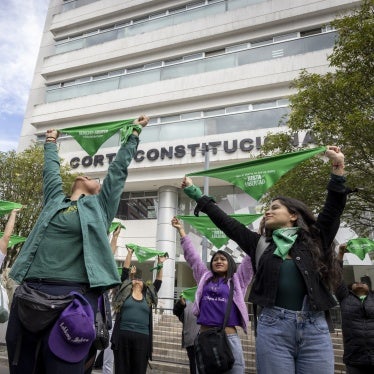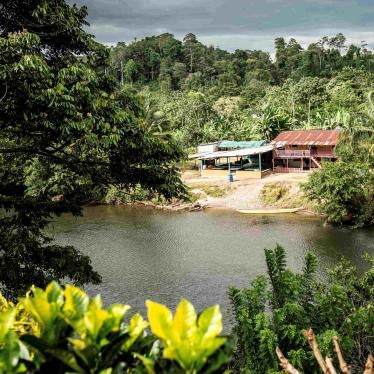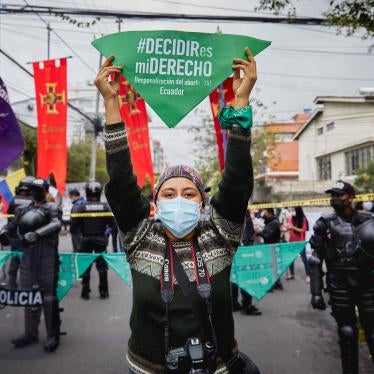Last week, Colombia’s senate passed an important bill that is a major step in aiding and protecting sexual violence survivors – especially those who are raped or assaulted by guerillas, paramilitaries, Colombian forces, or others in the context of the country’s decades-long conflict.
While this is a significant victory for victims, it is bittersweet. One of the most vocal proponents of the law, Ana Angelica Bello, died in February 2013 of a self-inflicted gunshot wound under circumstances that remain unclear. Angelica, from rural Colombia, became a fearless activist for victims of the armed conflict after being forced off her land by armed groups. She was raped by men she believed to be former paramilitary as punishment for her activism. The law could have changed her life.
Human Rights Watch called for the adoption of this law in 2012, after documenting the many obstacles displaced women who were also victims of sexual violence encountered when trying to access health care or justice. We spoke with women who received death threats, or were raped again as retaliation for filing criminal complaints. Others suffered humiliation and mistreatment by authorities.
Under this law, sexual slavery and forced prostitution, which occurred during the conflict, are specifically addressed. The law recognizes that sexual violence crimes can occur under many types of conditions that prevent the victim from giving her consent and isn’t defined by use of force or threats.
The law guarantees women’s confidentiality and privacy. Before, the name of a woman who reported an assault might get released, making her an easy target for more threats.
The law isn’t perfect, but it contains many positive changes. It calls for sexual violence victims to receive psycho-social support and free comprehensive medical attention. It pressures judicial authorities to work on these cases, as opposed to letting them linger in dusty files. And it explicitly protects victims against further discrimination based on their past sexual history, behavior, or sexual orientation – no more saying that women “deserved it.”
Importantly, the law also states that sexual violence can constitute a crime against humanity, under the standards provided for in international law.
Angelica Bellofought tirelessly for this law. She was the backbone to the victims-led grassroots movement to end impunity for sexual violence in conflict. For that, she was constantly threatened. In early February 2013, she had emailed a dozen or so of us that she had just received new death threats. Her colleague had been raped for the fifth time a few months earlier. The last time I saw her, she told me how challenging it was to live this way. Never fully believed or supported by the state, Angelica died lacking access to many of the services victims of sexual violence need to move forward with their lives.
Reading the text of the law, I see reflections of Angelica’s tenacity in promoting the rights of victims. I also know that Angelica would warn of the tough road ahead. As she said to the Miami Herald, “We have to make sure Colombian laws and standards are complied with…The laws that protect women in Colombia are dead law.” Once President Juan Manuel Santos signs the bill, the real work will begin.







